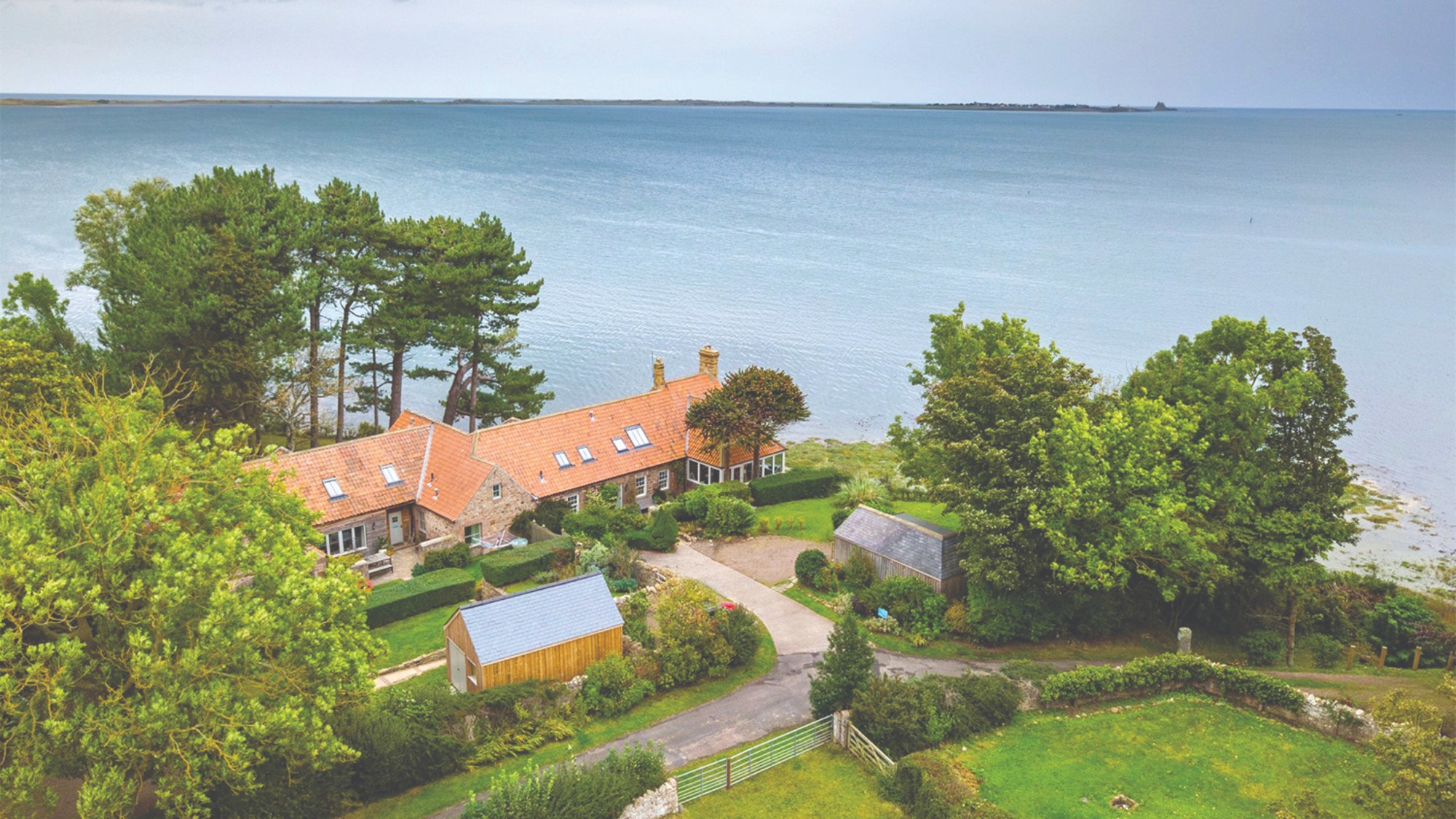We need better emergency powers laws
Where is the pandemic legislation?


A free daily email with the biggest news stories of the day – and the best features from TheWeek.com
You are now subscribed
Your newsletter sign-up was successful
The defining uncertainty of the COVID-19 pandemic isn't limited to the science of the thing, though certainly confusion there abounds six months in. The other locus of confusion is in the legal realm: What can the government actually make us do? Are mask mandates constitutional? What about stay-at-home orders? Curfews? Business shutdowns? Church closures? Can they do that?
Judging by the proliferation of court cases probing these questions nationwide, this isn't only a confusion among the general public, and it is a confusion we need to clear up. As this crisis winds down and we return to a "peacetime" footing, state legislatures and city councils should prioritize crafting — and perhaps even submitting for public referendum — specific emergency powers legislation that avoids the same uncertainty in turmoil to come. We shouldn't have to wonder if a public health order is legal or merely an official whim, and grants of emergency powers should be circumscribed by the Constitution and reflective of the will of the people.
In our present straits, the repercussions of legal confusion have been grave. Consider Pennsylvania, where U.S. District Judge William Stickman IV ruled Monday that several strict COVID-19 containment measures imposed by Gov. Tom Wolf (D) were unconstitutional.
The Week
Escape your echo chamber. Get the facts behind the news, plus analysis from multiple perspectives.

Sign up for The Week's Free Newsletters
From our morning news briefing to a weekly Good News Newsletter, get the best of The Week delivered directly to your inbox.
From our morning news briefing to a weekly Good News Newsletter, get the best of The Week delivered directly to your inbox.
As Stickman's decision details, Pennsylvania's pandemic response began with an emergency declaration by the governor. This proclamation vested Wolf "with extraordinary authority to take expansive action by executive order," Stickman writes. The governor's office coalesced a working group of unknown members which met privately and did not publish reports of its activity for the people who had to live by its choices. Mission creep set in. Initially temporary measures to "flatten the curve" evolved into indefinite measures to curtail transmission more generally. "[F]ormality," said testimony from the defense which Stickman quotes in his ruling, "was not the first thing on [group members'] minds."
That lack of formality produced perhaps the most ridiculous of the orders Monday's decision struck down: the differentiation between "life-sustaining" and "non-life-sustaining" businesses. These are not terms defined in Pennsylvania law. Nor did the governor's working group bother to define them. "I'm not sure we wrote down anywhere what 'life-sustaining' meant," testified Sam Robinson, Wolf's deputy chief of staff. They just made a list, he said, from a "sort of common understanding."
The list changed 10 times between March and May. It also shut down businesses that sold the same products as other businesses allowed to stay open. Several plaintiffs in the case had small, independent stores that were forced to close ("non-life-sustaining") while big box stores with inventory including the same products could stay open ("life-sustaining"). Customers who would have shopped locally went to Target or Home Depot instead. One plaintiff, owner of a small appliance and furniture shop, lost an estimated $300,000, a devastating sum.
Arbitrary rules like this don't merely do economic harm. They also embarrass and undermine the entire pandemic response. They feed suspicion that the whole thing is overblown, that officials don't know what they're talking about — as, in the case of these categories, they literally did not. Imagine seeing years of your hard work mercilessly undone by some unidentified, unelected committee issuing policies now ruled illegal. I've been supportive of many pandemic response measures, but that is intolerable.
A free daily email with the biggest news stories of the day – and the best features from TheWeek.com
It is also exactly the sort of mess which careful legislation, developed without the pressure, panic, and time constraints of an active crisis, could prevent.
That the government has authority (called "police powers" and overwhelmingly vested in state and local governments) to issue public health regulations is not in real dispute. There's a long history of business closures, public assembly bans, travel restrictions, and quarantines being upheld in American courts. The Supreme Court affirmed "the authority of a state to enact quarantine laws and 'health laws of every description'" in Jacobson v. Massachusetts (1905), where the court upheld a statute allowing cities to mandate smallpox vaccines for nearly all residents. The same ruling says states' police powers permit "such reasonable regulations established directly by legislative enactments as will protect the public health and the public safety" (emphasis added).
But many of worst pandemic measures of this year weren't established by legislators. They came from governors, like Wolf in Pennsylvania, claiming for themselves extensive executive authority. The notorious nursing home decision in New York was an executive order. So was Michigan's order forcing open stores to refuse to sell some "non-essential" products. Likewise local curfews, seen in Kansas, Michigan, and elsewhere, as if the virus behaves differently at night.
Granted, legislative specificity is not a cure-all, as recent history demonstrates. The Jacobson ruling ends with a caveat that even properly legislated regulations could be "so arbitrary and oppressive ... as to justify the interference of the courts." But however great that risk may be with laws precisely defining emergency powers, it is far greater without them, winging it with the often chaotic and sometimes nonsensical ad hoc approach of this go-round. We've had too much power and not enough law.
Wolf's plan was a "well-intended effort to protect Pennsylvanians from the virus," Stickman wrote in his ruling, but good intentions are insufficient when lives, liberties, and livelihoods are at stake. "Indeed," he continued, "the greatest threats to our system of constitutional liberties may arise when the ends are laudable and the intent is good — especially in time of emergency."
There will always be controversy and confusion in a crisis, but surely we can do better than this. Unconstrained executive power is as troublemaking at the state level as it is at the federal. Legislation is the constraint we need.
Bonnie Kristian was a deputy editor and acting editor-in-chief of TheWeek.com. She is a columnist at Christianity Today and author of Untrustworthy: The Knowledge Crisis Breaking Our Brains, Polluting Our Politics, and Corrupting Christian Community (forthcoming 2022) and A Flexible Faith: Rethinking What It Means to Follow Jesus Today (2018). Her writing has also appeared at Time Magazine, CNN, USA Today, Newsweek, the Los Angeles Times, and The American Conservative, among other outlets.
-
 What to watch out for at the Winter Olympics
What to watch out for at the Winter OlympicsThe Explainer Family dynasties, Ice agents and unlikely heroes are expected at the tournament
-
 Properties of the week: houses near spectacular coastal walks
Properties of the week: houses near spectacular coastal walksThe Week Recommends Featuring homes in Cornwall, Devon and Northumberland
-
 Will Beatrice and Eugenie be dragged into the Epstein scandal?
Will Beatrice and Eugenie be dragged into the Epstein scandal?Talking Point The latest slew of embarrassing emails from Fergie to the notorious sex offender have put her daughters in a deeply uncomfortable position
-
 The billionaires’ wealth tax: a catastrophe for California?
The billionaires’ wealth tax: a catastrophe for California?Talking Point Peter Thiel and Larry Page preparing to change state residency
-
 Bari Weiss’ ‘60 Minutes’ scandal is about more than one report
Bari Weiss’ ‘60 Minutes’ scandal is about more than one reportIN THE SPOTLIGHT By blocking an approved segment on a controversial prison holding US deportees in El Salvador, the editor-in-chief of CBS News has become the main story
-
 Has Zohran Mamdani shown the Democrats how to win again?
Has Zohran Mamdani shown the Democrats how to win again?Today’s Big Question New York City mayoral election touted as victory for left-wing populists but moderate centrist wins elsewhere present more complex path for Democratic Party
-
 Millions turn out for anti-Trump ‘No Kings’ rallies
Millions turn out for anti-Trump ‘No Kings’ ralliesSpeed Read An estimated 7 million people participated, 2 million more than at the first ‘No Kings’ protest in June
-
 Ghislaine Maxwell: angling for a Trump pardon
Ghislaine Maxwell: angling for a Trump pardonTalking Point Convicted sex trafficker's testimony could shed new light on president's links to Jeffrey Epstein
-
 The last words and final moments of 40 presidents
The last words and final moments of 40 presidentsThe Explainer Some are eloquent quotes worthy of the holders of the highest office in the nation, and others... aren't
-
 The JFK files: the truth at last?
The JFK files: the truth at last?In The Spotlight More than 64,000 previously classified documents relating the 1963 assassination of John F. Kennedy have been released by the Trump administration
-
 'Seriously, not literally': how should the world take Donald Trump?
'Seriously, not literally': how should the world take Donald Trump?Today's big question White House rhetoric and reality look likely to become increasingly blurred
